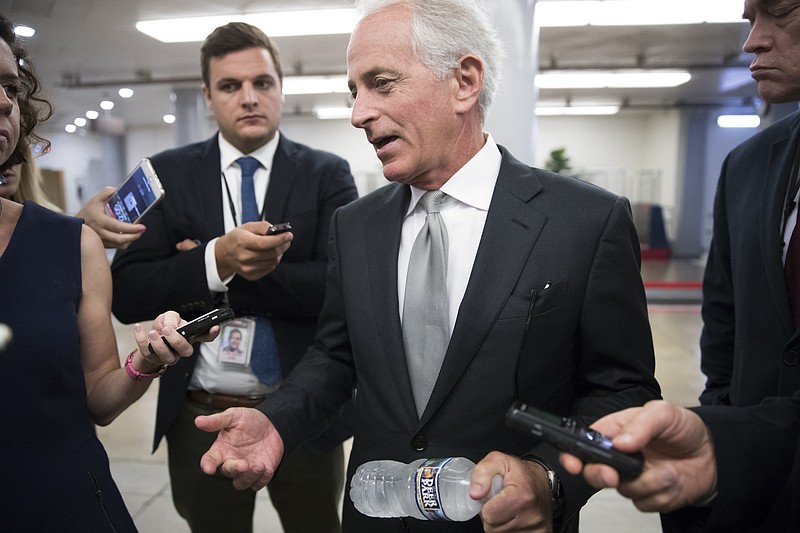Three news stories combined this week to show why most Americans are furious with the national government that purports to serve them. The government's legislative and executive branches are culpable in one way or another for their respective "dysfunction," so who can blame voters for rebelling? Unsurprisingly, some members of Congress are retiring in disgust.
First, Sen. Bob Corker's not unexpected announcement this week not to seek a third term is important for Tennesseans. But it also intensifies the Republican party's headache ahead of the looming midterm elections, the results of which are anybody's guess.
Corker has long favored the citizen-legislator concept, explaining in his announcement that he had early on thought of serving only two terms. Tennesseans and the GOP establishment need only consider his background as a successful businessman and Chattanooga mayor to understand his thinking.
Those careers reinforced Corker's reputation as results-oriented, and for good reason. A business owner who ignores that ideal can soon find himself working for someone else. And a derelict mayor is just one telephone call away from disgruntled constituents.
That helps explain Corker's expressions of frustration over Congress' failure so far to pass any significant legislation despite the members' promises otherwise.
Second, despite its takeover of the White House and retention of its congressional majorities, the GOP has failed to deliver on its promises to Americans that sweeping changes were imminent.
Nowhere was that more evident than the embarrassing failure to "repeal and replace" Obamacare after seven years of promising to do just that. Much of the blame has fallen on Senate Majority Leader Mitch McConnell's leadership but both parties must share the responsibility of failing to work together on the issue. Or even indicating an intention to do so.
There is of course no guarantee that circumstances will change if Democrats defy expectations and win control of one or both houses of Congress next year.
Thus the discouraging realization that Congress as an institution is stagnant, which in turn helps explain the aggregation of poll results giving it only a 15 percent approval rating.
It is too soon to tell whether Congress will begin a self-imposed therapy regimen to try reversing that damning judgment. Odds are it won't. It is so seriously indebted to campaign donors - PACs, lobbyists, rich individuals, et al - that recovery seems seriously out of reach.
The same could be said of both parties' refusal to embrace bipartisanship in addressing an issue like health care. It's safe to assume no member is without such coverage - unlike millions of uninsured Americans who must rely on emergency room visits.
In a better universe, the nation's president would use the power of his office to persuade Congress to do what it ought: see to it that Americans' basic needs are met. But a president can't do that unless he has acquired a knowledge of what is needed to achieve success. Unfortunately, Donald Trump has failed to do just that. No surprise, since his "leadership" rests upon a pointless slogan ("Make American Great Again") rather than a clear vision unencumbered by "Twitterization" of the presidency.
Finally, to the extent that polls focused on a president's effectiveness are revealing, Americans are increasingly wary of Trump's stewardship. The respected Quinnipiac University poll this week says more than half of them think he is "not fit to serve as president." A similar percentage give him a miserable judgment on job performance.
Most worrisome is how America, in the future, will deal with a bellicose North Korea and its erratic leader. Common sense dictates adhering to Theodore Roosevelt's advice on international crises: "Speak softly and carry a big stick..."
The Pentagon gives Trump a "big stick. His version of the first part, unfortunately is "Open a big mouth."
Michael Loftin is a former opinion editor of The Chattanooga Times.
